Play Vintage Games at the Red Hook Pinball Museum
Explore the museum's collection of meticulously restored vintage machines from as early as the 1800s!


I’ve always loved this little diner at 357 West Street. Partially because it’s just so small, sandwiched between buildings. It is also a remnant of the nature of the area before the hand of gentrification swept through. The block is a real hold out, because just next door is Morton Square, the famous luxury condo of celebrities like the Olson twins and Daniel Radcliffe. Perhaps the proximity to 350 West Street (at Houston), once a storage and railroad freight facility, helps keep this block gritty, which still contains an auto repair shop, car wash and an adult entertainment house.
The chrome and green diner was designed by New Jersey-based Kullman Diner manufacturers. It’s been called the Terminal Diner, Lunchbox Diner, the Lost Diner and Rib, the last incarnation which closed in 2006. Preservationist Michael Perlman made some pushing to save it (like he did with the Cheyenne and Moondance diners) for the last three years. In that time, diner has really taken a beating–with a ton of graffiti and the glass door replaced by wooden boards. Perlman says:
“The tri-state area was once dotted with classic freestanding diners, but today they are becoming an ‘endangered species’ at an alarming rate. To our advantage, they were factory-built and pre-assembled, and therefore manufactured to move. Diners are amongst the “ultimate public institutions” which harbor countless memories and bridge the generations. They brought together individuals of various occupations in a cozy & striking ambiance, and are a significant part of Americana.”
Here’s a photo essay by Untapped photographer Chuck Lau on its current state:
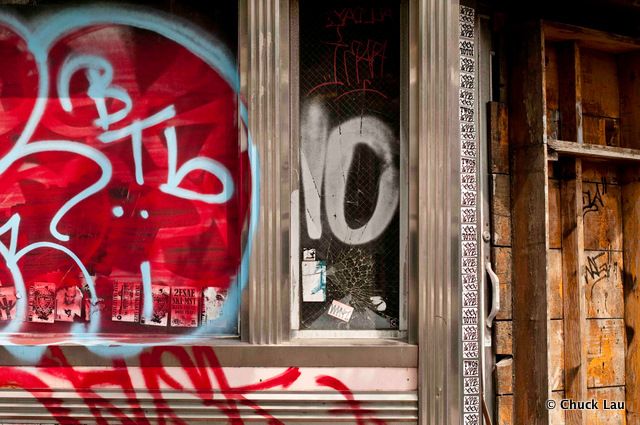
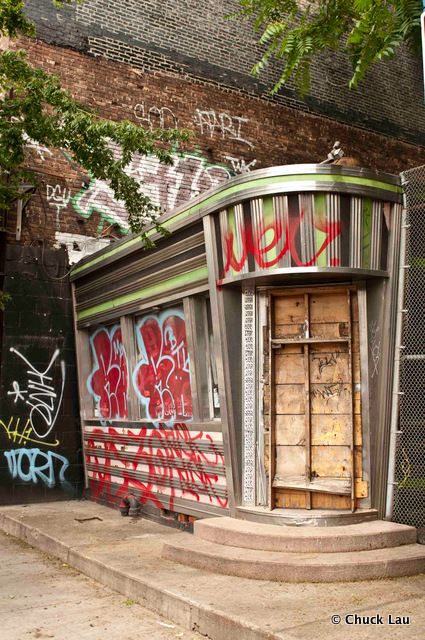
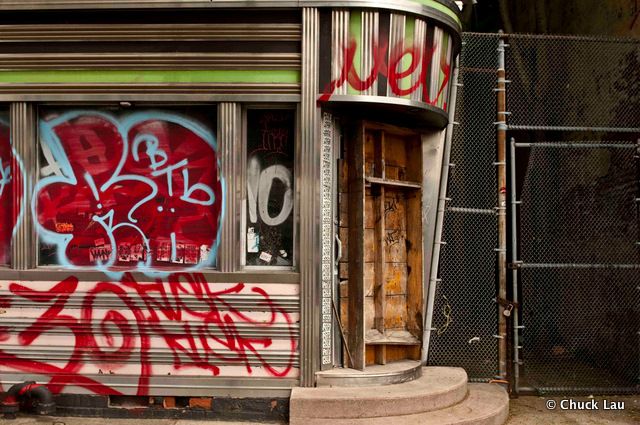
There is some interesting graffiti if you look closely:
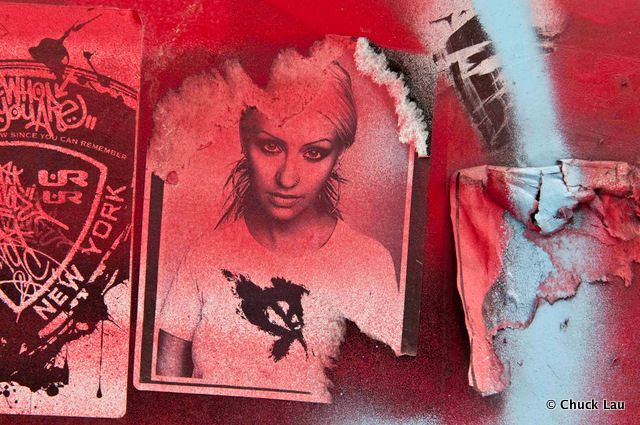
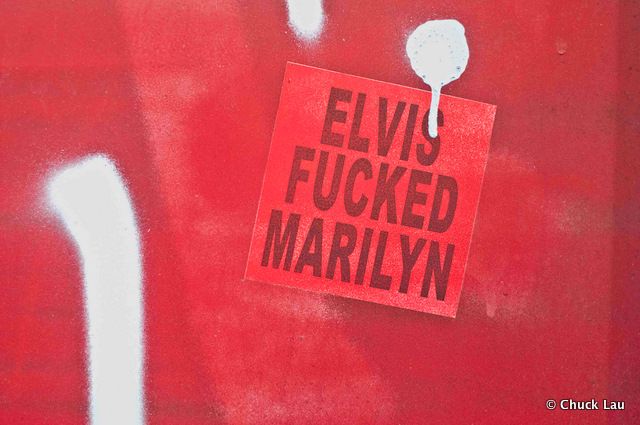
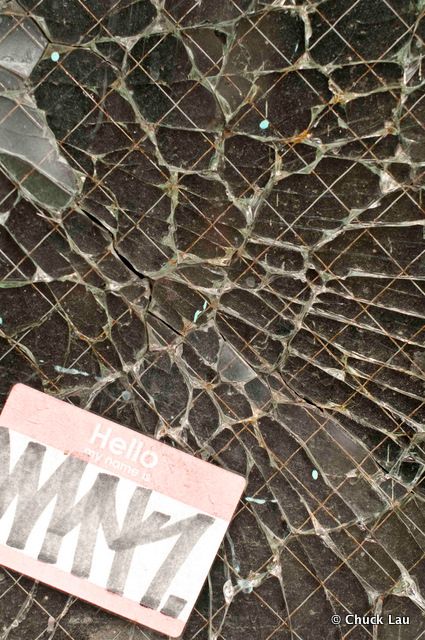
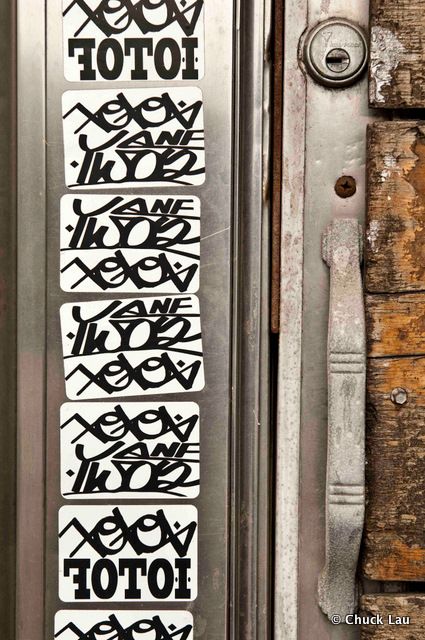
The alley next to the diner:
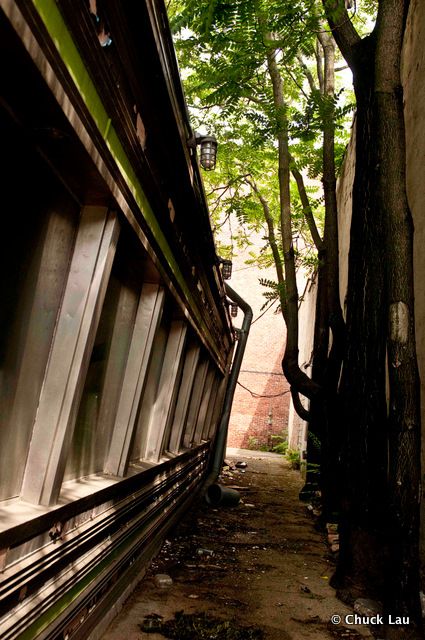
The areas just adjacent to the diner:
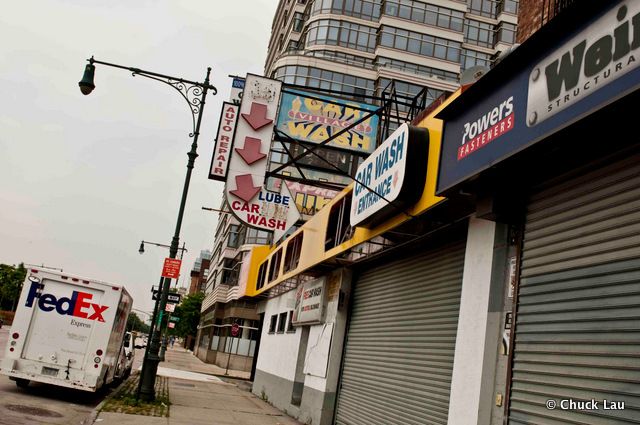
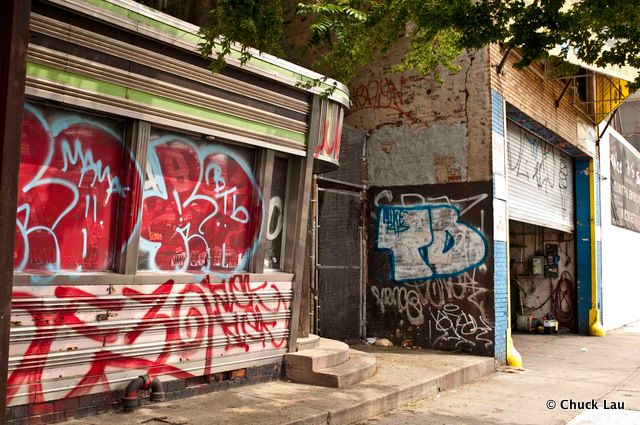
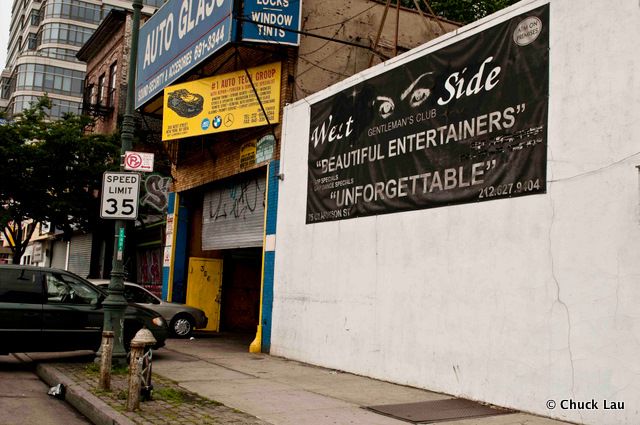
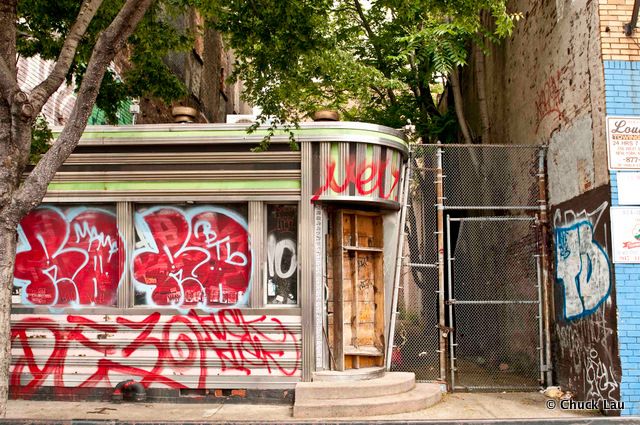
One thing I came across was that the 1944 certificate of occupancy authorizes a “dining room, kitchen and storage” on the premises but the 1960 certificate only authorizes a parking lot and storage. The 1971 certificate is the first time a “diner” is mentioned. When did this diner really get constructed and did it get moved here? Another fun tidbit is that the Kullman company, which began specializing in diners, was able to diversify by going into pre-fab construction (even building a whole US Embassy and shipping it to Guinea-Bissau!) and designing institutional facilities ranging from college campuses to prisons.
Check out additional photos of the inside of the diner.
All photographs by Chuck Lau Photography.
Get in touch with the author @untappedmich.
Subscribe to our newsletter